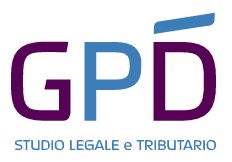Best Transportation Lawyers in Rome
Share your needs with us, get contacted by law firms.
Free. Takes 2 min.
List of the best lawyers in Rome, Italy
About Transportation Law in Rome, Italy
Transportation law in Rome, Italy, encompasses a set of rules and regulations that govern the wide array of transportation systems available in the city. This includes public transport like buses, trams, and the metro system, as well as private and commercial transportation such as taxis, rideshares, bicycles, and freight transport. Rome's historical significance and bustling tourism industry make the management of its transportation network a complex task that must balance the preservation of historical sites with the modern needs of residents, tourists, and business operators.
Why You May Need a Lawyer
Legal advice or representation can be essential in various situations related to transportation in Rome. These scenarios may include disputes over traffic violations, accidents involving personal injuries, insurance claims, issues with transportation workers or unions, regulatory compliance for businesses in the transport sector, and matters of transportation infrastructure affecting property rights. Navigating the complexities of local, national, and European Union laws that affect transportation requires specific legal expertise.
Local Laws Overview
The transportation laws in Rome are a mix of local municipal regulations and national laws that are in line with EU directives. Key aspects include permit requirements for commercial transport operators, regulations on emissions and environmental compliance for vehicles, local parking rules and zones, traffic regulations, and public transportation governance. Also relevant are laws concerning the rights and obligations of passengers, as well as those addressing taxi licenses and the operation of sharing economy transportation services.
Frequently Asked Questions
1. What should I do if I receive a traffic fine in Rome?
If you receive a traffic fine, you should verify the violation and pay the fine within the time frame provided to avoid additional charges. If you believe the fine is unjustified, you may contest it with legal assistance.
2. Are there any specific laws for tourists using transportation in Rome?
Tourists must adhere to the same transportation laws as locals. They should be particularly aware of restricted traffic zones (ZTL) in the city center, which require special permits for access.
3. How reliable is public transportation in Rome for daily commuting?
Public transportation in Rome, including buses, trams, and the metro system, is generally reliable, but it is advisable to check the latest schedules and any service updates. Strikes and disruptions can occasionally impact services.
4. Can I use an international driver's license to drive in Rome?
Yes, tourists can use an international driver's license to drive in Rome. However, they must also carry their valid national driving license with them.
5. How do I report an incident or accident involving public transportation?
If you're involved in an incident or accident, report it to the local police and the transportation operator immediately. Document the scene and contact details of any witnesses for future claims or proceedings.
6. What are the rules for cyclists in Rome?
Cyclists must follow Italian traffic laws, which include requirements such as using bike lanes where available and wearing helmets for children under 18. Riding on sidewalks is typically prohibited.
7. What do I need to know about taxis in Rome?
Taxis in Rome are metered, and rates are regulated by the city. It's important to use official taxis and to be aware of the fixed fares to the airports.
8. Is ride-sharing legal in Rome?
Ride-sharing services like Uber are legal in Rome, but they operate under different regulations than traditional taxi services and are subject to legal changes.
9. What rights do I have if a transportation service denies me access?
If you feel you have been unjustly denied access to transportation services, you may have grounds for a claim. Rights may vary based on the service provider's policies and applicable transportation laws.
10. How do I navigate the legalities of starting a transportation business in Rome?
Starting a transportation business requires understanding local regulations, obtaining the necessary licenses, and ensuring compliance with national and EU laws. Consultation with a specialized lawyer is advisable.
Additional Resources
For those seeking legal advice, the following resources may prove helpful:
- The Comune di Roma (Rome's City Council) Transportation Department for local regulations and permits.
- The Ministry of Infrastructure and Transport for national transportation laws and policies.
- The European Union Transport Department for regulations on international transportation operations.
- Legal firms specializing in transportation law in Italy.
Next Steps
If you require legal assistance in transportation in Rome, your next steps should be:
- Document your specific situation or issues thoroughly.
- Seek referrals or conduct research to find a lawyer or law firm specialized in transportation law.
- Arrange an initial consultation to discuss your legal needs and evaluate your options.
- Consider language assistance if you are not fluent in Italian, as legal proceedings will likely require proficiency in the language.
Lawzana helps you find the best lawyers and law firms in Rome through a curated and pre-screened list of qualified legal professionals. Our platform offers rankings and detailed profiles of attorneys and law firms, allowing you to compare based on practice areas, including Transportation, experience, and client feedback.
Each profile includes a description of the firm's areas of practice, client reviews, team members and partners, year of establishment, spoken languages, office locations, contact information, social media presence, and any published articles or resources. Most firms on our platform speak English and are experienced in both local and international legal matters.
Get a quote from top-rated law firms in Rome, Italy — quickly, securely, and without unnecessary hassle.
Disclaimer:
The information provided on this page is for general informational purposes only and does not constitute legal advice. While we strive to ensure the accuracy and relevance of the content, legal information may change over time, and interpretations of the law can vary. You should always consult with a qualified legal professional for advice specific to your situation.
We disclaim all liability for actions taken or not taken based on the content of this page. If you believe any information is incorrect or outdated, please contact us, and we will review and update it where appropriate.














